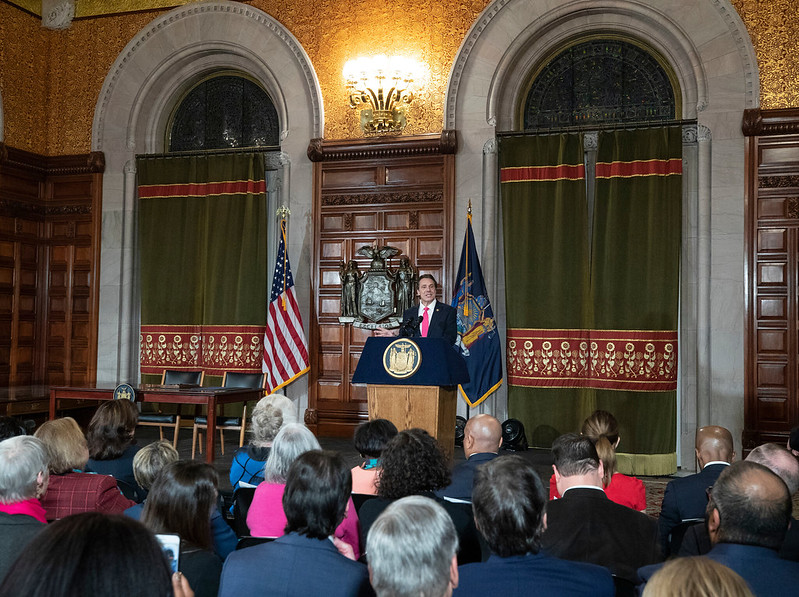
(photo: Mike Groll/Governor's Office)
When your medical career is bookended by two of the worst public health emergencies in modern American history – the heroin epidemic of the 1970s and our country’s current crisis of overdose and addiction – it gives you a unique perspective on the problem and the solutions.
To overcome this deadly crisis we must begin by viewing addiction for what it is – a treatable disease – and then bring to scale evidence-based medical strategies that we know give patients the best chance for a positive outcome.
Medication Assisted Treatment – or MAT – is the quickest, easiest-to-start weapon we have to prevent patients from exposure to possible overdose. In combination with counseling as needed, it is the most effective tool we have to combat the opioid epidemic.
MAT involves prescribing medication approved by the Federal Drug Administration to treat opioid dependence. The medications reduce cravings and withdrawal and support patients who are recovering from illicit opioid use. Patients respond differently to the dose, formulation, and delivery method given their histories and prior experiences, as agreed upon with their physician. In my experience, MAT coupled with regular counseling and medical supervision is the best chance patients have for success.
New York is poised to become the latest to join a growing list of states – politically blue, red, and purple – that are removing obstacles to MAT and instead rightly focusing on patient care and access. On-demand access to all FDA-approved medications for opioid dependence is the national trend because it is smart public health policy. California, Ohio, Texas, and Missouri are just some of the states to embrace the wisdom of MAT and pass laws or regulations to increase access and availability.
New York’s bi-partisan legislation removes burdensome and potentially deadly barriers to treatment like prior authorizations and covers the medicine under both private insurance and Medicaid. Enacting these reforms now requires Governor Andrew Cuomo’s signature.
At Damian Family Care Centers, in our various clinics in New York City and hard-hit Upstate New York, we regularly witness the difficulties involved when a patient has to wait for MAT because the insurance company or Medicaid requires prior authorization. Patients who are struggling with opioid dependence often have challenges with impulse control as part of their addiction. It is essential that the medications prescribed for the patient are available to the patient as soon as possible. Otherwise the patient will not tolerate the wait and will turn to the streets. And the streets are more dangerous than ever because of the proliferation of fentanyl, which is exponentially more powerful than prescription opioids or heroin. When fentanyl becomes part of the equation, a “regular” dose can easily become a lethal dose.
Any delay, let alone 24 to 48 hours or more, can make the difference between life and death for a patient who agrees to Medication Assisted Treatment.
The bottom line is we are in the midst of a raging opioid epidemic. If people were dying from an infectious illness, would we think it was ethical to require prior authorization for any of the possible medications? Would it be effective to limit the medicines we know can help? The doctors, nurse practitioners, and physician’s assistants on the front lines of the crisis must be able to make medical judgments in the best interests of their patients. That requires the ability to prescribe all the medications the FDA has approved for the treatment of opioid dependence.
Nearly 4,000 people died in New York State from drug overdoses in the last year, including one every six hours in New York City.
The barriers to treatment – while well-intended – were built during a different time under vastly different circumstances. The most meaningful action New York State, and all states, can take right now regarding the opioid, heroin, and fentanyl crisis is to ensure MAT is readily available to the thousands of people who need it.
***
Sonia Lopez, MD, is the Director of Addiction Medicine at Damian Family Care Centers.
***
Have an op-ed idea or submission for Gotham Gazette? Email This email address is being protected from spambots. You need JavaScript enabled to view it.




